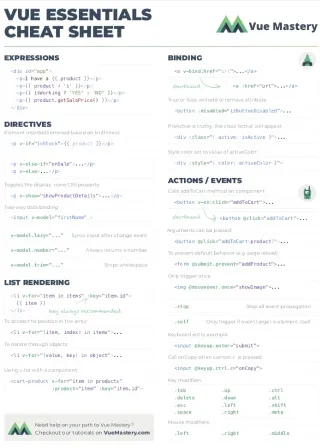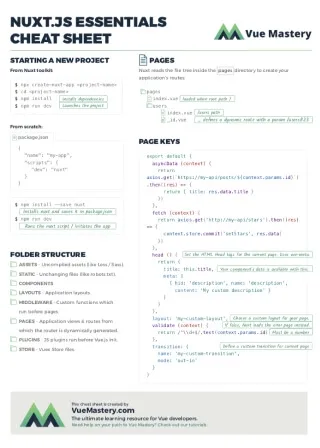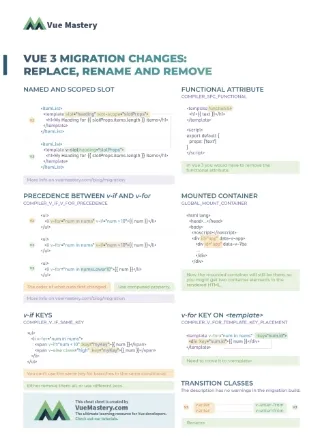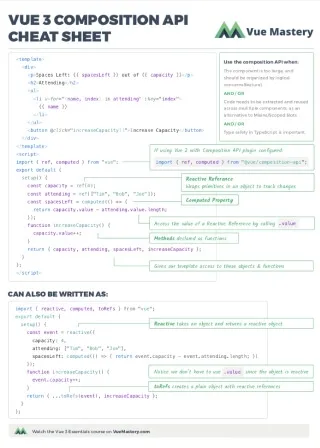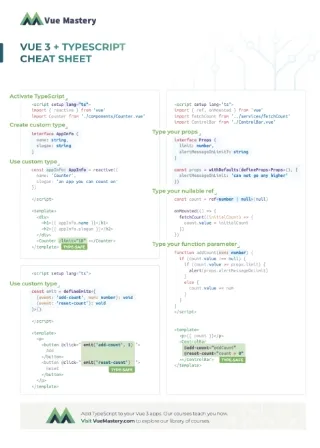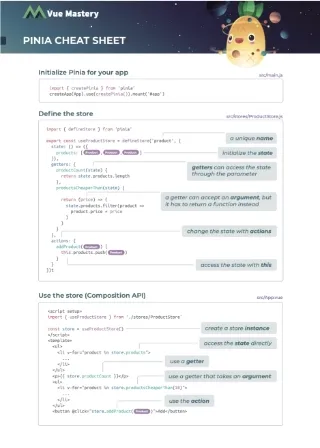It’s safe to say 2020 was quite the year. As it comes to a close, we’re reflecting on the progress that’s been made in the world of Vue and what we’re excited about for 2021.
The release we were waiting for
Our favorite framework has made leaps and bounds from where it was just a year ago, notably due to the major release we’d been waiting for: Vue 3. This brought us a version of Vue rewritten from the ground up to be more powerful, performant, and flexible for developers of every experience level.
At a high level, Vue 3 brought us:
- A compact size: 20kb gzipped at runtime (or smaller with tree-shaking)
- The Composition API
- Enhanced TypeScript support
- Multi-root Components
- The teleport component
Vite: Faster hot reloading
Alongside Vue 3, Vue Creator Evan You also released a new web dev build tool in 2020: Vite. This tool serves your code via native ES Module imports during development and bundles it with Rollup for production.
The advantages to this approach are:
- The server cold start is super fast because there’s no bundling necessary
- The only code that is compiled is what’s actually imported on the current view
- Hot module replacement is consistently fast regardless of app size
Nuxt Content Module
Nuxt.js can be key for scaling up your Vue apps. While the Nuxt team is consistently at work improving this fronted framework that sits on top of Vue, a notable addition to the framework for 2020 was the @nuxt/content module. This feature allows you to fetch your Markdown, JSON, YAML, XML and CSV files through a MongoDB-like API, acting as a Git-based Headless CMS.
Ionic Vue
A new player in the Vue community is Ionic’s latest release: Ionic Vue. You might already be familiar with Ionic, a popular framework for developing mobile/hybrid apps using only web technologies (JavaScript, CSS, HTML). With Ionic Vue, we can now use the Vue we know and love, in combination with Ionic’s collection of UI components, to build native apps.
Since Ionic Vue is brand new and already compatible with Vue 3, we can look forward to the potential it can bring for 2021.
What we’re excited about in 2021
As we look toward 2021, we’re looking forward to the Vue.js ecosystem continuing to evolve along with its freshly empowered core library.
Since Vue 3 was released in September of 2020, this of course means that not every Vue developer and company using Vue have transitioned to the new-and-improved version. As we progress into 2021, more of the Vue community will have had time to explore the framework and share their experiences, expertise, and production use cases that we can all learn from.
More compatibility
We can also look forward to existing tools and libraries in the ecosystem becoming compatible with Vue 3. While libraries such as Vue Test Utils and Ionic Vue are already Vue 3-ready, we can look forward to additional community favorites such as Vuetify, Nuxt.js, Vuelidate, etc seamlessly plugging into our Vue 3 apps in 2021.
Developer Experience
In addition to updated popular libraries, we can also look forward to new additions to the Vue ecosystem, like VueDX: a set of tools for a better developer experience with Vue.
Leveling up in 2021
The Vue ecosystem is rich with exciting changes and consistent updates. To stay current with your Vue skills and to stay competitive for 2021 and beyond, we recommend using a Vue learning resource such as Vue Mastery to level-up your skills. Our library of video courses is updated every week, helping you stay relevant in your role.
You can currently get a 20% off discount for a year subscription to our platform. This means you’ll be getting 4 months free compared to our regular annual price. You can get your discount here before it runs out. We also have team accounts to level-up your team together!





